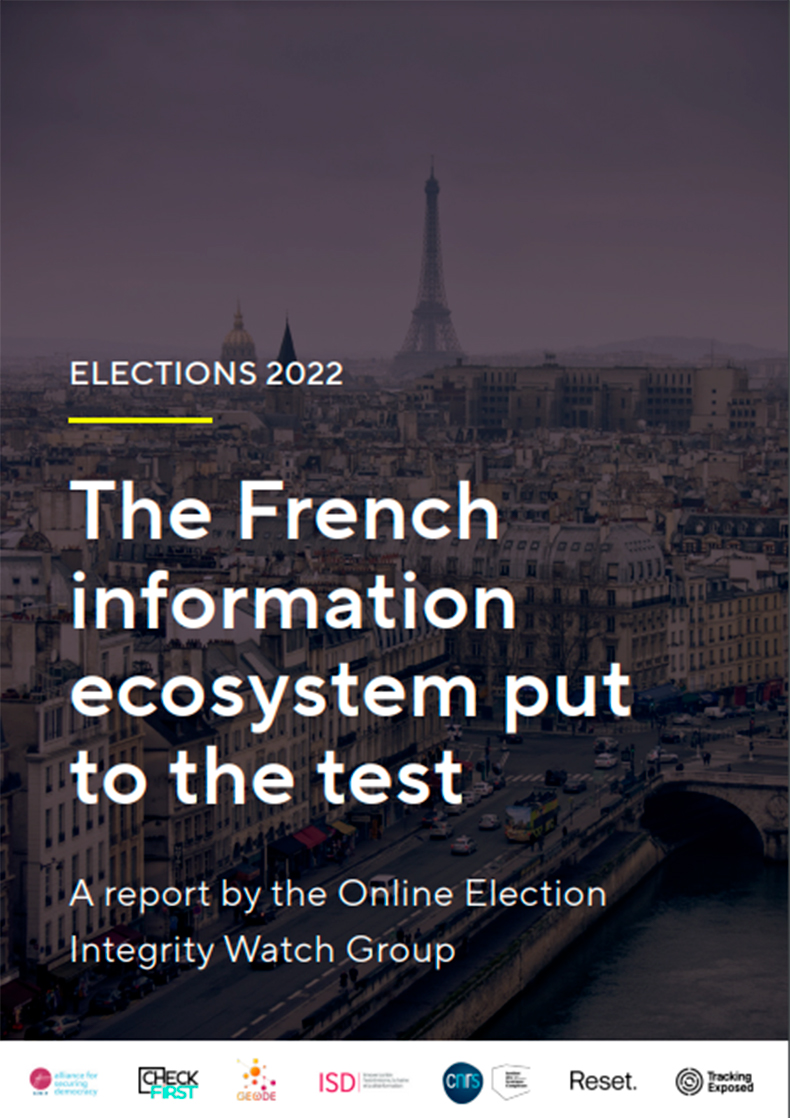Elections 2022: The French Information Ecosystem put to the Test

Authors: Iris Boyer, Théophile Lenoir
Published: 28 June 2022
A press release on the report is available here.
In response to major concerns around disinformation attacks during the 2022 French elections, the Online Election Integrity Watch Group brought together a group of researchers to monitor information manipulation online meant to sway public opinion.
The Watch Group is an initiative by Reset and functions as a discussion and working group monitoring online threats to electoral integrity. It is made up of ISD and nine other member organisations.
The concluding findings of that investigation are now available in our joint report “The French Information Ecosystem put to the Test“. The group observed worrying trends during the course of the 2022 elections that could, in the long run, influence the results of future elections. Narratives challenging the democratic process or the legitimacy of opinion polls were found to be persistent online and have even led to, in some cases, citizen responses like the setting up of initiatives for citizen control of the vote count. The Watch Group also highlights the inconsistencies in the categorisation of online advertisements in a French electoral context that is highly regulated, but is not always well enforced in the digital sphere. Despite these threats, the French ecosystem seems resilient. The group puts forward several hypotheses that could explain the relative resilience of the French information ecosystem during the presidential and legislative elections of 2022. The report concludes with technical recommendations to ensure the proper functioning of the French information ecosystem.
Iris Boyer is a senior advisor at ISD and head of ISD France. She is also working as a consultant for Reset on a project to monitor disinformation around the French elections, and is a member of various expert groups on information manipulation and online threats set up by the Fondation Descartes and Arcom. Her particular areas of expertise are digital regulation and education.
Théophile Lenoir is a PhD student at the University of Leeds, where he is conducting research on the objectivity of public policy in relation to the debate about the environmental impact of digital technologies. Between 2017 and 2021 he developed the Institut Montaigne’s research programme on digital issues, and is now an associate researcher for the organisation. He is a graduate of the London School of Economics and the USC Annenberg School for Communication and Journalism.
